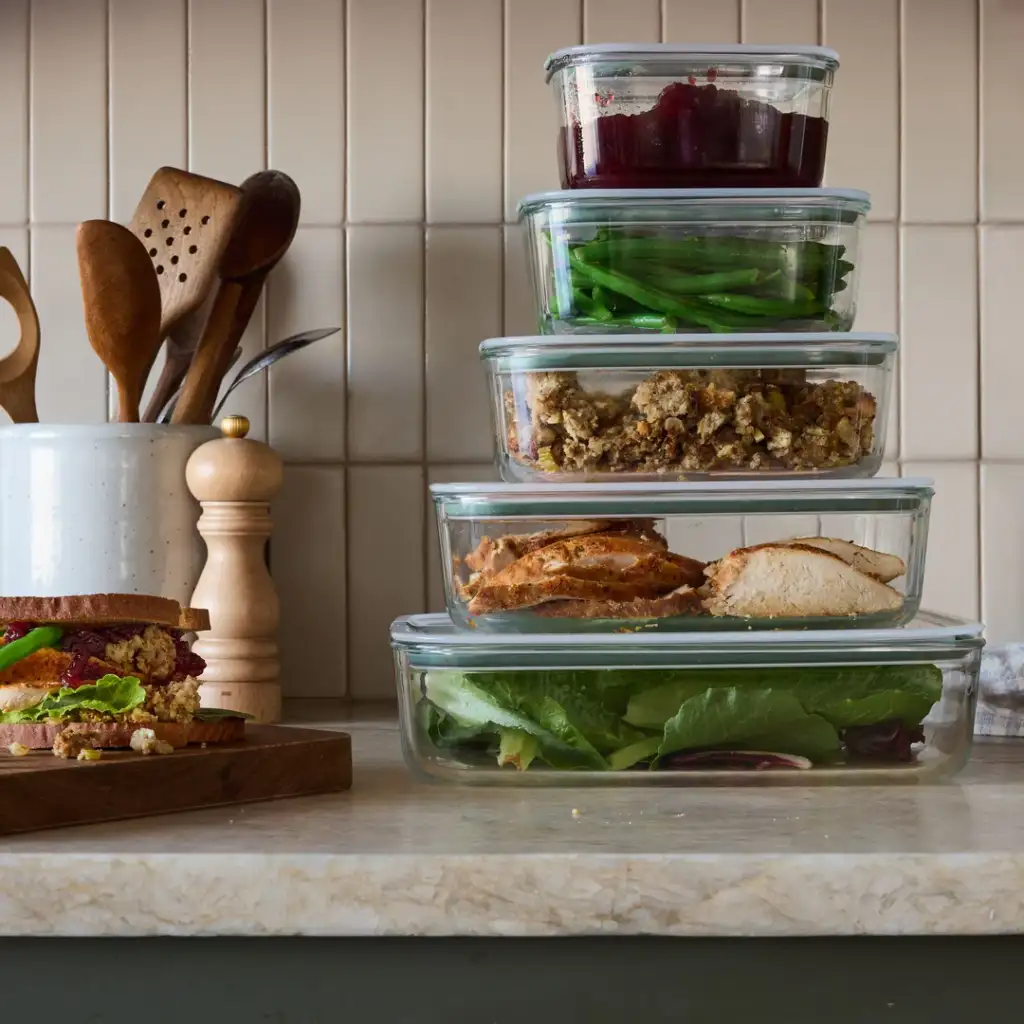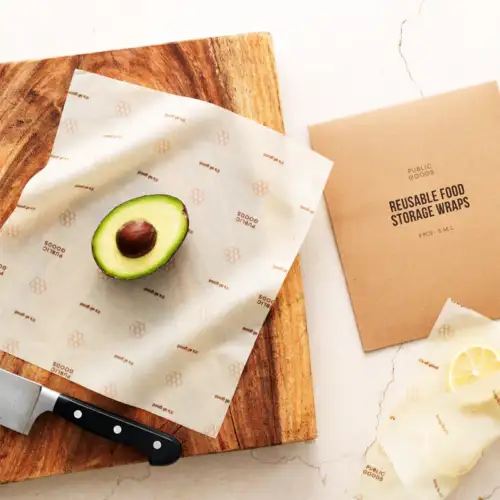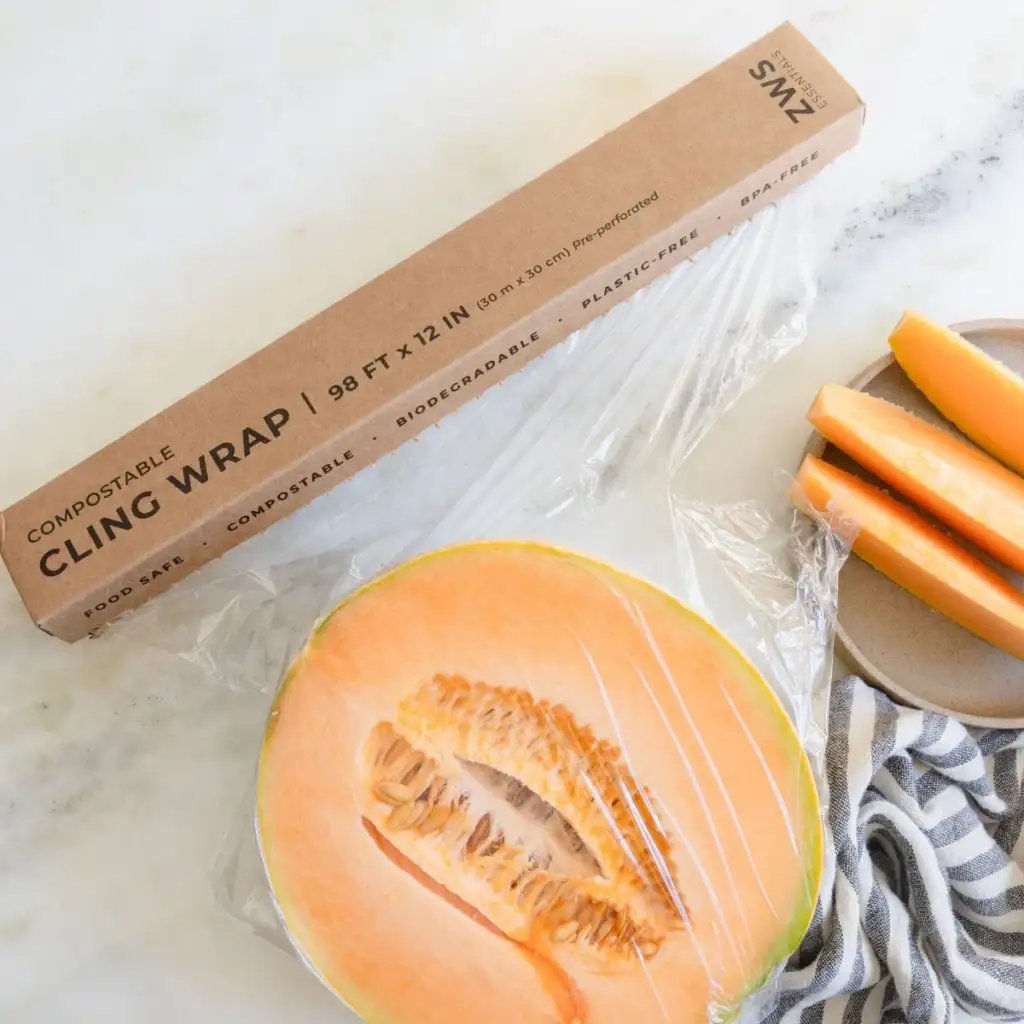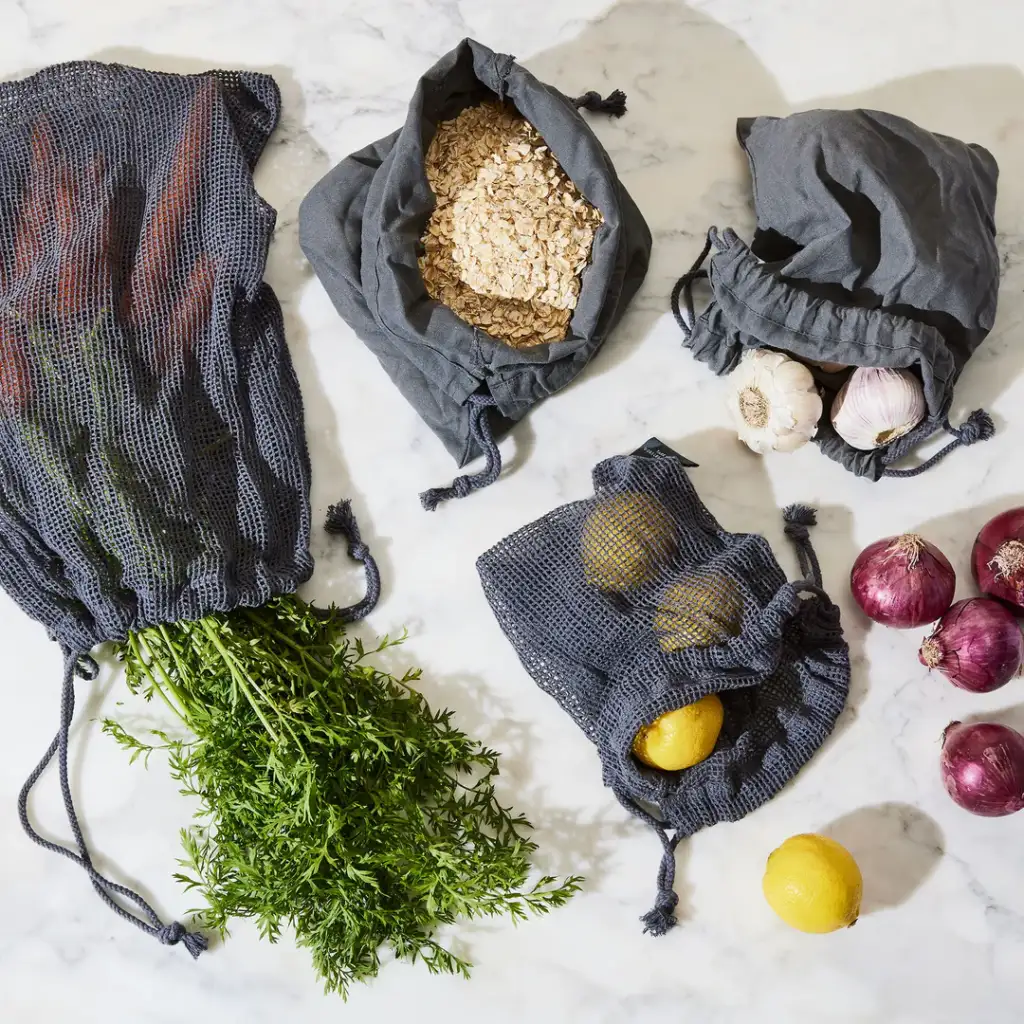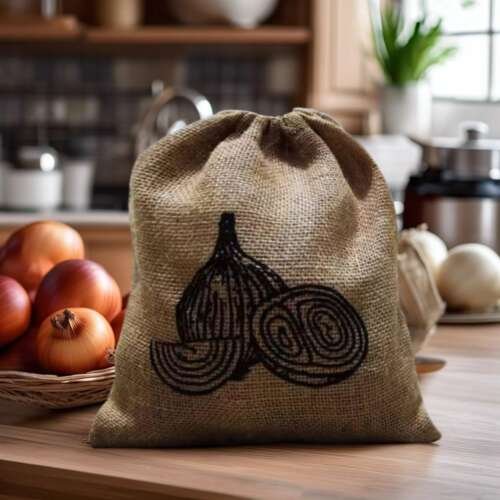Ways to Store Fresh Produce Without Single-Use Plastic
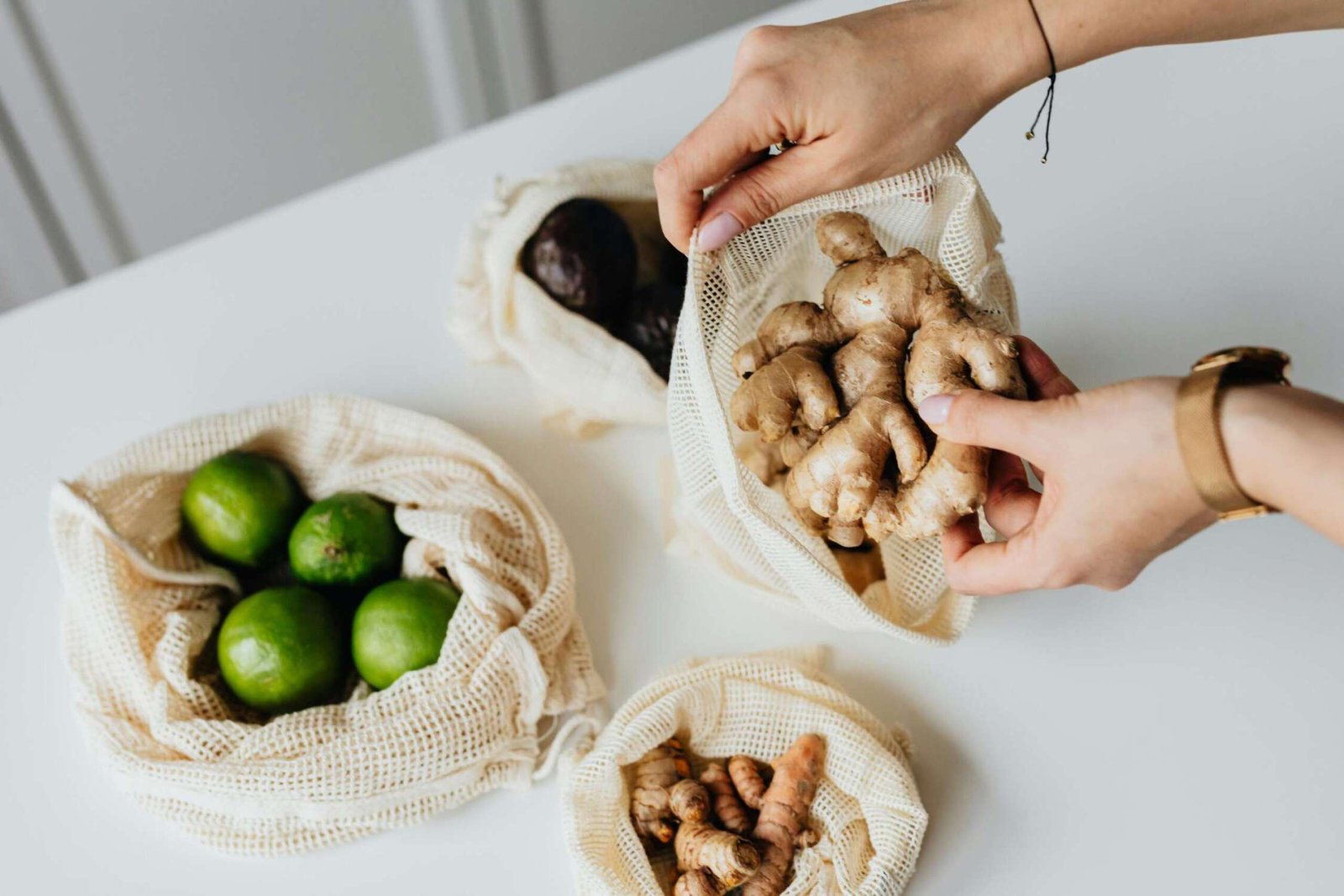
Share This Article
Worried about microplastics? Try the best food storage containers for fruits and veggies that aren’t single-use plastic.
| All products featured on The Wellness Feed are independently selected by our editors for their environmental and ethical impact. However, we may earn an affiliate commission when you buy something through our retail links. |
Interested in ditching single-use plastic? So are we. We’ve rounded up alternatives to plastic bags, wraps, and other single-use plastic items that only add to landfill waste and microplastic pollution. After all, keeping fruits and vegetables crisp and tasty shouldn’t come at the cost of harming our planet. Every year, tons of plastic waste from food packaging ends up polluting oceans, harming wildlife, and polluting landfills. Switching to reusable, refillable, or recyclable storage ideas can make a real difference.
The stats are startling—about 400 million tons of plastic are made each year globally, with a large chunk dedicated to food packaging. Plastic wraps, bags, and containers aren’t biodegradable which leads to long-lasting pollution. This waste harms animals, pollutes our water resources, and enters our food chain, spreading chemicals that affect human health. Choosing alternative storage methods not only helps protect the planet but also our health. The good news? Small steps add up to big changes.
Best of all, sustainable options are easy to adopt and work just as well as plastic. Let’s explore creative ways to store your veggies free from single-use plastic.
Reusable Glass and Stainless Steel
Switching to glass or stainless steel containers is a smart move. These materials last for years, resist stains, and don’t leak chemicals. Mason jars, stainless steel lunch boxes, or bowls are versatile options. For best results, ensure lids seal tight to keep vegetables fresh longer and prevent odd odors from seeping in. Cleaning is simple, and these containers look great.
Beeswax Wraps and Bags
Imagine wrapping your veggies in a cozy, breathable blanket—beeswax wraps do just that. They are made from cotton fabric coated with beeswax, resin, and oil, making them biodegradable. Use them to cover chopped greens or wrap carrots, cucumbers, and herbs. As bags, they’re another handy tool for storing root veggies or leafy greens. They’re washable, reusable, and perfect for reducing waste. Keep them in good condition by rinsing with cold water and air-drying.
Plant-Based and Compostable Packaging
Biodegradable wraps and containers crafted from plant materials such as cornstarch, sugarcane, or bamboo are popping up everywhere. Brands now offer compostable films and trays that break down naturally in your compost pile. After using these products, simply toss them in your compost bin. This way, you’re turning waste into nourishing soil instead of filling landfills with plastic trash.
Cloth and Cotton Wraps
Breathability matters for keeping veggies fresh. Cloth wraps and cotton produce bags allow air circulation, helping to avoid excess moisture that causes spoilage. Wrap leafy greens in cloth and store herbs in small cotton bags inside the fridge. This keeps produce dry, crisp, and ready to eat longer.
Burlap Bags
Carrots, potatoes, and onions are perfect to store in straw, burlap, or paper bags. These natural materials regulate humidity and keep pests at bay. When you use straw or paper, you’re giving your veggies an environment similar to what they’d enjoy in a root cellar but right in your home or shed. Plus, they’re biodegradable and easy to replace.
Veggie Prep Before Storage
Proper prep is key. Wash veggies thoroughly, then dry them completely before storage. Excess moisture invites mold and decay. Consider natural preservatives like a splash of lemon juice or vinegar spray to inhibit mold growth and keep produce fresh longer. These simple steps can extend freshness without any plastic or chemicals.
Ditching Black Plastic? Shop These 9 Bamboo Kitchen Utensils And Tools
Choosing sustainable ways to store fresh vegetables makes a real impact. Not only do eco-friendly containers and natural methods help cut down plastic waste, but they also keep your produce fresher and healthier. Making simple changes now can lead to a cleaner planet and better food quality for you and future generations. Start with one new storage idea today—your wallet, health, and the environment will thank you.

